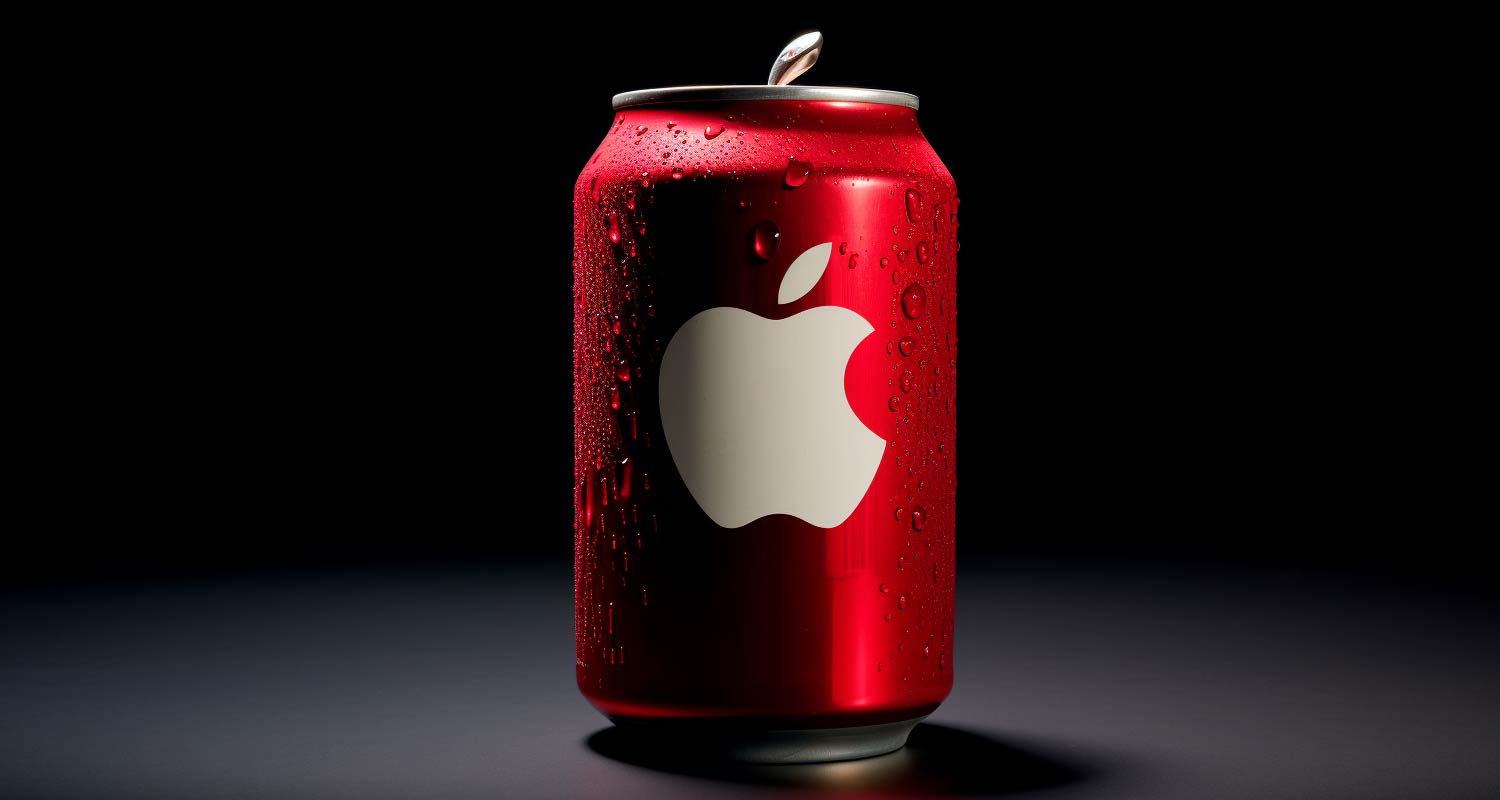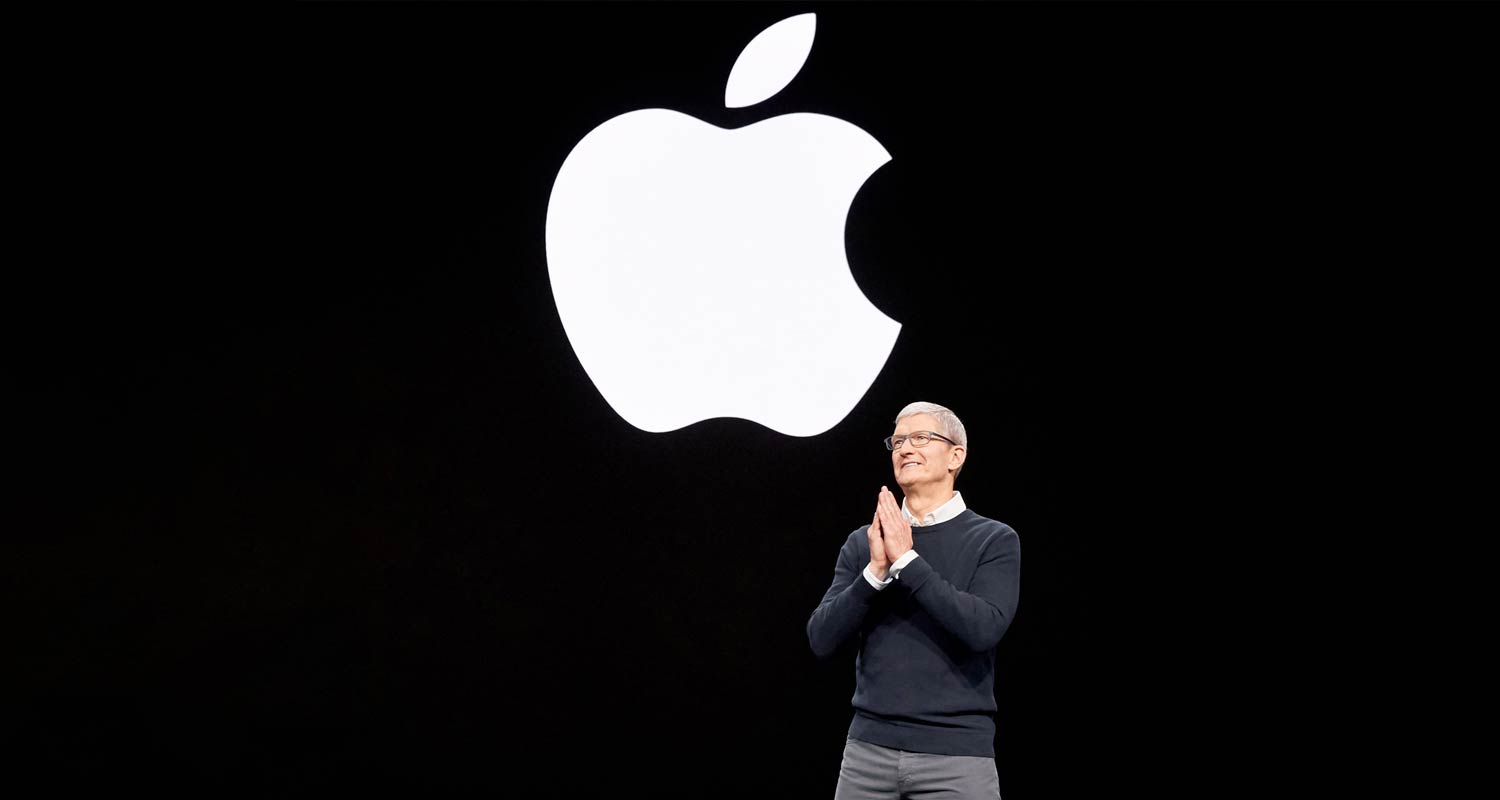 For two decades, no company better embodied the promise of the stock market than Apple. Its transformation from niche computer maker to the most valuable corporation on the planet made its shares a cornerstone of investment portfolios worldwide.
For two decades, no company better embodied the promise of the stock market than Apple. Its transformation from niche computer maker to the most valuable corporation on the planet made its shares a cornerstone of investment portfolios worldwide.
But in what seems like a blink of an eye, Apple’s sheen is starting to fade. Artificial intelligence is the story in technology now, driving the growth that the company used to count on from selling its gadgets and services to eager consumers across the globe.
This has Apple in a quandary. Its revenue expansion is stagnating, and the stock is underperforming the Nasdaq 100 by about 16 percentage points, the most to start a year since 2013. The company still generates massive revenues, but whether that can keep increasing at the pace investors have come to expect is an open question. Apple executives say they have big plans for AI, which bulls hope will help rejuvenate its sales expansion. But so far it’s hard to gauge its prospects.
All of which has investors wondering, if Apple’s AI dreams don’t come to fruition, what is the role of the shares today?
“It’s become more of a value stock, a bit like Coca-Cola,” said Phil Blancato, CEO at Ladenburg Thalmann Asset Management and chief market strategist at Osaic. “All the things you want that’s going to offer you a defensive profile and market rate returns for the foreseeable future until they have a new catalyst.”
Indeed, Apple remains the reliable money machine it’s always been. Looking for a shareholder-friendly cash flow juggernaut? How about a safe haven with a bulletproof balance sheet? It checks those boxes.
Next big growth market
“If you’re a long-term investor that really likes solid, stable growth, that’s very annuity like, with growing margins, improving profitability and a business that generates significant amounts of cash and still has lots of innovation runway, we think Apple is a great place to be,” said Kevin Walkush, portfolio manager at Jensen Investment Management.
But investors looking to buy into the next big growth market have turned their attention to AI. Nvidia is taking Apple’s place as the tech behemoth to own due to the seemingly insatiable demand for chips used to power large language models.
Read: Apple’s walled garden is under attack
Apple has fallen more than 10% this year, erasing around US$330-billion in market capitalisation, and ceding its position as the world’s most valuable company to Microsoft, whose incorporation of ChatGPT into products like its Office software is starting to boost revenue growth. Microsoft now has a market value of almost $3.1-trillion versus Apple’s $2.7-trillion. Nvidia, whose revenue and profits have soared amid an arms race for AI computing power, isn’t far behind at $2.2-trillion.
The problem isn’t so much that Apple has suddenly stopped growing, that’s been happening for a while — its revenue shrank in every quarter of its last fiscal year even as the stock was hitting records. The trouble is the company hasn’t shown anything on AI at a time when iPhones sales are sluggish and the company is facing mounting regulatory threats.

“We’re going through an incredible wave of innovation,” said Mark Lehmann, CEO at Citizens JMP Securities. “The market is telling you that Apple has a lot to prove here and to date they haven’t shown much.”
Notoriously secretive, Apple has divulged little about its plans to incorporate AI services into its products. CEO Tim Cook has promised that Apple would “break new ground” in AI this year and market professionals are anticipating big news at the company’s annual software developer’s conference in a few months. However, many investors are losing patience and turning to stocks with a clearer path in AI.
At the core of Apple’s woes is the disappearance of revenue growth and it’s unclear what, if anything, will stoke it. The company’s first major new product category in nearly a decade, the Vision Pro headset, isn’t expected to contribute significantly to growth for years. Apple recently pulled the plug on its long effort to build an electric car. At the same time, iPhone revenue has stagnated and sales in China have dropped amid a weak economy and greater competition.
On top of that, Apple is facing mounting pressure from regulators. Earlier this month, Apple was fined about $2-billion by the EU over an investigation into claims it blocked music-streaming rivals on its platforms. In the US, the justice department appears close to filing an antitrust lawsuit after five years of work building a case alleging Apple imposed software and hardware limitations on iPhones and iPads to impede competition from rivals.
Sales in fiscal 2023 fell 3% and are projected to rise just 2% in the current year. By comparison, revenue expanded at a 33% clip in 2021. Meanwhile, Nvidia’s sales are projected to jump 79% and Microsoft’s 15% in the companies’ current fiscal years.
For the past couple of years, Apple has commanded a premium valuation on par with Microsoft’s. Two years ago, when tech stocks got hit hard, the shares held up far better than those of its peers. But that’s no longer the case. Apple is priced at about 25x profits projected over the next 12 months, down from about 30x last summer. That’s similar to Walmart’s valuation. Microsoft, meanwhile, is priced at 32x and Nvidia at 35x.
Hot thing
That said, Microsoft trading at a record high may actually offer a good example of Apple’s long-term potential. When Satya Nadella took over the company in 2014, it was a software maker with a 20th century mindset and a languishing stock. Now it’s everywhere, from the cloud to AI, and its stock is soaring.
“Everyone has to reinvent themselves, and it just shows you how quick the revolution in tech is,” Citizens JMP’s Lehmann said. “Microsoft finally got going, but it took them 15 years to figure it out.”
Of course, despite this year’s gloomy performance, it’s easy to make the case that Apple shares are poised for a rebound and that it’s too early to count it out of the AI race. The company has more than $170-billion in cash on its balance sheet and its net income is expected to top $100-billion this year. That gives Apple unmatched resources to push into new markets and still return cash to shareholders through dividends and stock buybacks.
Read: Apple is on a bruising collision course with the EU
“It’s hard to not compare to what’s the hot thing right now,” Jensen Investment Management’s Walkush said. “If you took AI out of the picture right now, and the sensationalism, would people look at Apple differently? I think they would.” — Jeran Wittenstein, (c) 2024 Bloomberg LP




